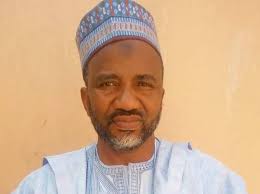It is now an inevitable peculiarity of our democratic dispensation that the courts rather than the polls have the last say on the final verdict of the electoral contest. Absurd as it is for a panel of judges to have the authority of conclusive endorsement of the choice made by multitudes exercising their civic duty, it is an awkward burden the judiciary must bear as a constitutional responsibility, not an acquired privilege, subject to whims, caprices and undue influence.
As a major pillar of constitutional democracy, the judiciary is ultimately accountable to the people in the exercise of its functions because, where judicial prudence stops is unavoidably the take-off point of injustice and self-help scenarios fill the void. However, it should also be emphasized that in other climes where democracy and politics have matured like vintage wine, the vigilance of the electorate insulates the electoral process from the crude and sophisticated malpractices, which are seemingly built into the process by power hungry incumbents, provoking the quest for judicial review.
Against this background, the situation Nigerians face in anticipation of the imminent verdict of the Presidential Election Tribunal in the petition challenging the election of President Muhammadu Buhari, looms large as a matter of serious concern. At the end of its hearings of the petition filed by Atiku Abubakar, former vice president and the PDP presidential candidate in the February 2019 elections, and the defense put up by the incumbent presidents team, the justices were left with a crucial task. Assessing the gravity of the petitioners articulated contention that President Buharis election is invalid, against the potency of his legal teams defense of the election in order to deliver a verdict that is just and seen to be just before God and man.
As man is imperfect, so also must his endeavors, like elections, lack perfection, regardless of genuine intentions. Elections, especially involving such vast constituencies, numerous voters, huge logistics, multiple malpractices, rules and regulations, one beleaguered electoral body and the highest office in the land as we find in Nigeria, are bound to be contentious and even questionable. Thus, elections at all levels are subject to petitions from the dissatisfied which must be heard and determined by adhoc judicial panels. It is a sad commentary on the conduct of the election processes and the confidence of the parties, candidates and the citizenry that democratic choice has become highly contentious, inconclusive and ultimately dependent on judicial review and validation.
For obvious reasons of human fallibility, not to mention the judiciarys recently exposed institutional susceptibility to the political, economic and financial ill-winds blowing across the land, standards of elections are no longer the exclusive preserve of electoral bodies and judicial panels to monitor and assess. A plethora of independent, local and international non-governmental agencies have since assumed greater roles and their collective conclusions provide a more convincing comparative basis of determining the relevance and validity of judicial pronouncements for public record.
It is already beyond doubt that some of the issues raised by the petitioners pertaining to compliance with electoral laws, conduct of the elections and qualification to contest have been in the public domain and come under the scrutiny of independent local and international observers resulting in a consensus rooted in logic and legality. The judicial review is also supported by the tendering as exhibits and numerous references to reports of election monitoring bodies.
Public perception of the conduct and outcome of elections from voters, facilitators and political parties feedback is vital in judicial reviews. The judiciarys usual recourse to technicalities has been discouraged even by the CJN. This is where voiceless voters and courtroom audiences will readily identify the undertones of judicial pronouncements as well as the level of independence of the temple of justice and their place in history.
From the foregoing, the burden of anxious anticipation and heightened expectation of the ultimate triumph of good over evil, truth over lies, straightforwardness over ambiguity and justice over injustice is shared by the politically conscious citizenry and the conscience of the justices of the Presidential Election Tribunal. But is the justices who have the last word, so help them God!
Gwazuwang writes from Jos, Plateau state.



